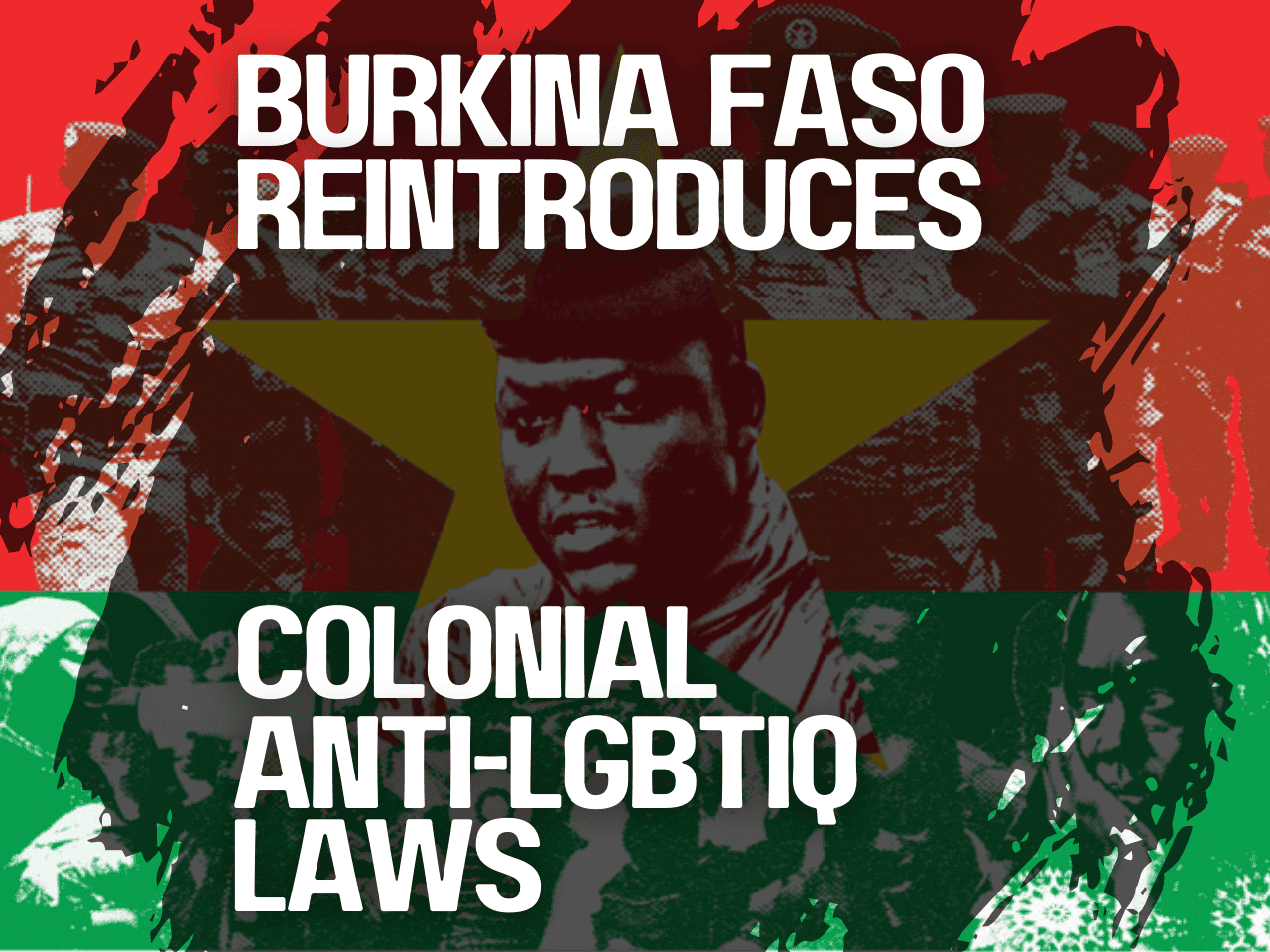The LGBTQIA+ community in Burkina Faso responds with shock to lawmakers’ decision to recriminalise consensual same-sex sexual relationships.
On 1 September 2025, all 71 MPs in Burkina Faso voted to adopt a new Persons and Family Code. Under the amended Code, anyone convicted of engaging in homosexual activity now faces between two and five years in prison, or a fine ranging from $3,600 to $17,800.
Burkina Faso’s Justice Minister, Edasso Rodrique Bayala, told the national broadcaster RTB that “if a person is a perpetrator of homosexuality or similar practices, as well as bizarre behaviour, they will go before a judge.”
In a statement featured on the Amnesty International website, Amnesty International Regional Director for West and Central Africa, Marceau Sivieude, said that although they welcomed some provisions of the Persons and Family Code — such as setting the minimum age for marriage at 18, establishing consent between two parties as the basis of marriage, and eliminating gender discrimination in inheritance rights — the move to criminalise same-sex relations was alarming. (…) “This does nothing but create discrimination and violates the right to equality before the law.”
Sivieude also said that Burkina Faso is now at odds with the African Charter on Human and Peoples’ Rights and the International Covenant on Civil and Political Rights, which the country ratified.
In another interview, Paul (not his real name), a member of the Burkina LGBTQIA+ community, said: “For my own safety I’ve become much more distrustful, I’ve shut myself off and try not to talk to certain people. How will we go to health centres? Will doctors and nurses protect us? Or will they report us?”
Like in some other African countries, the new legislation is suspected of aiming to distract the population from pressing issues such as poverty and displacement. LGBTQIA+ activist Frank Malaba told the Washington Blade that the Traoré regime “is now using queer people as a scapegoat.”
“Today it’s queer people; tomorrow, it could be women’s rights, journalists, or dissenters. A government that dictates whom you can love will not stop there,” Malaba said. “It is dehumanising. This law legitimises violence, blackmail, and the persecution of LGBTQIA+ people. It emboldens homophobic attacks, leaving individuals vulnerable to abuse from both the state and society. Celebrating the criminalisation of homosexuality is not defending morals or family — it is celebrating hate, oppression, and the denial of people’s humanity. That is the true face of bigotry.”
Amnesty International reports that Burkina Faso now follows in the footsteps of its neighbour Mali, which criminalised homosexuality in December 2024 under a new penal code. The Malian law defines consensual same-sex intimacy as “unnatural acts” and “offences related to indecent exposure,” punishing it with up to two years in prison and a fine of 200,000 CFA francs (€300). Both nations are currently governed by unelected military juntas.
Burkina Faso’s decision adds to the list of roughly 30 African countries that continue to criminalise consensual same-sex intimacy. Historically, such laws have been used to justify discrimination, violence, and human rights abuses against LGBTQIA+ people across the continent.
Burkina’s military ruler, Ibrahim Traoré, has cultivated an image as a fierce opponent of colonialism and Western domination. Ironically, his regime is now resurrecting a colonial-era legacy: laws that declare war on sexual minorities.
Read more about Traoré in this op-ed by Rosabell Kagumire.


